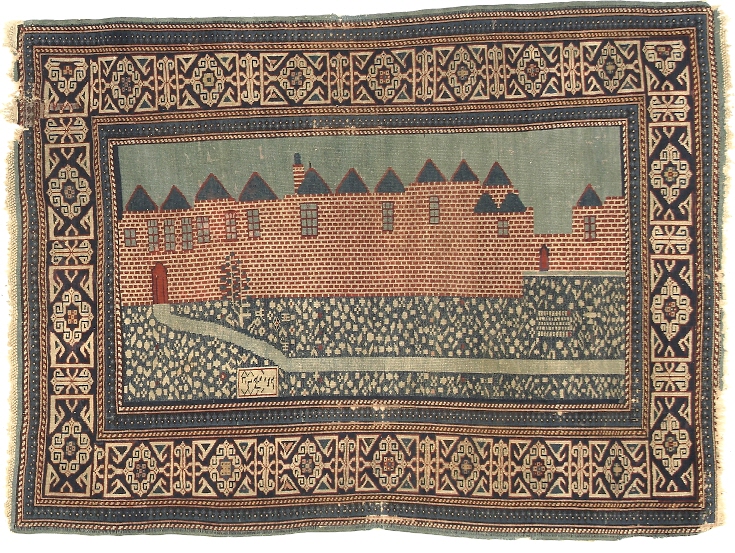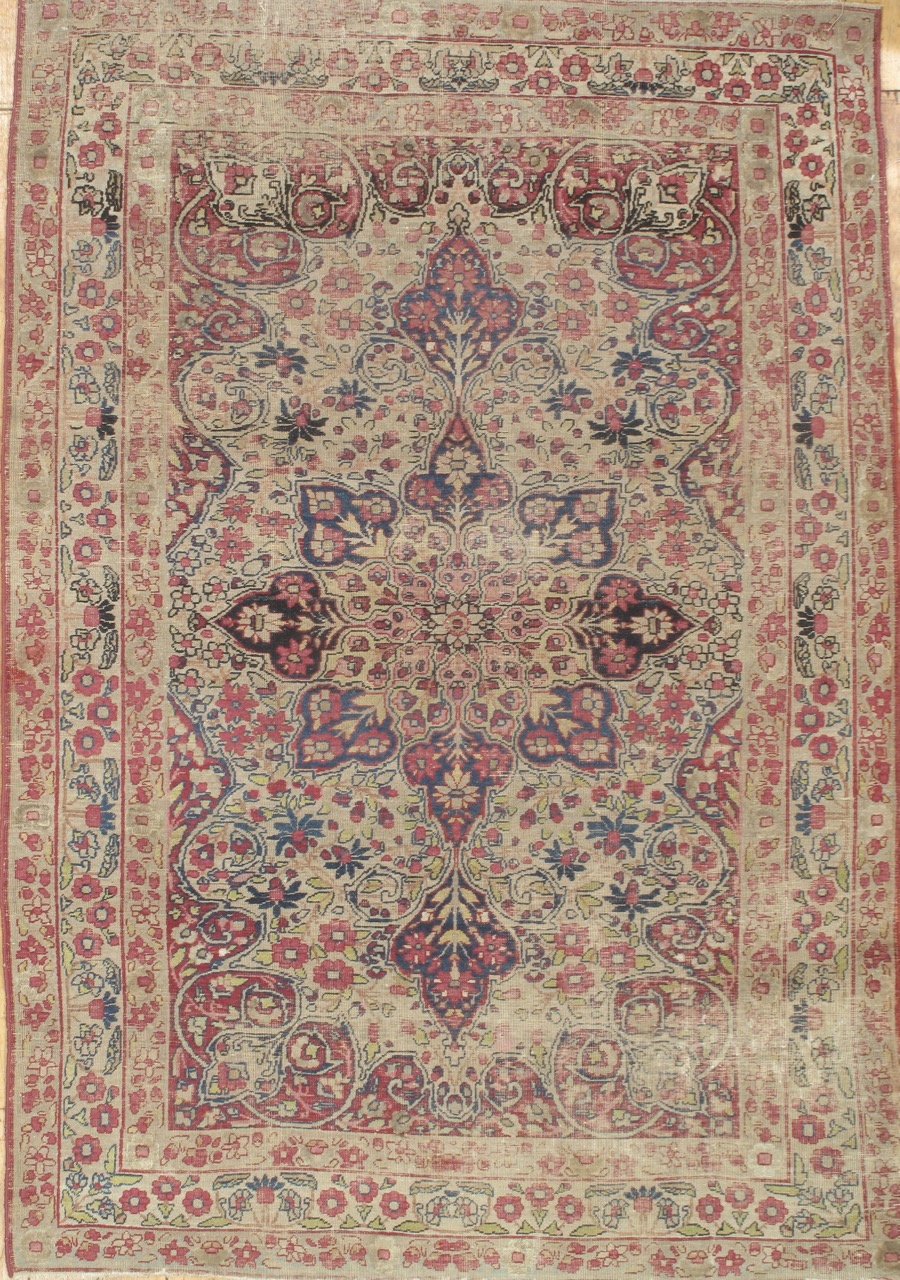
Very rare 19th century pictorial Caucasian rug representing an image from the city of Jerusalem.
This rug was woven in the Dagestan region of the Caucusus—probably in Kuba (Quba) to be more precise (a small village in present day Azerbaijan).
The Hebrew inscription “Mount Zion” is woven in mirror image (visible from the back. This would suggest that it was commissioned and copied from an illustration. The weaver, as quite often happens, wove the rug “in verso”.
The rarity of a Caucasian tribal carpet with Hebrew writing cannot be over emphasized. It was probably made or commissioned by the mountain Jews of the area. This is how they are described by encyclopedia.com:
The Mountain Jews are a distinct Jewish subgroup (in the context of world Judaism) and one of the oldest ethnic groups in Caucasia and Daghestan. Following their migration, the “Eastern Diaspora,” they have lived and their culture has evolved for centuries in a multinational environment also inhabited by Persians (Tats), Armenians, Turks of the eastern Caucasus, and, especially, the mountain peoples of Daghestan—hence the name “Mountain Jews” (Dagchifut).
An alternative theory as to its origin is that a Jewish trader who was traveling through the area had been inspired by a recent visit to Jerusalem and commissioned a rug to be woven for him to pick up upon his next visit.
Condition: There are some minor areas that need to be and can be easily restored on this rug. I keeping with museum guidelines, we have conserved, not restored it. The rug can be restored fully if desired.


